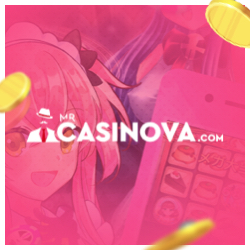Divinity II: The Dragon Knight Saga Xbox 360 Review
Publisher – Focus Home Interactive – Developer – Larian Studios – Genre – Action RPG – Players – 1 – Age Rating – 12+ – Other console/handheld formats – N/A
I have a confession to make: I don’t play RPG’s that often, although when I do get around to playing one I can quite easily get lost in its world. I didn’t get around to playing the original release of Divinity II either, despite it being a part of my collection, but with the release of this newly re-mastered version, I tasked myself with taking on the job of reviewing it and managed to lose myself in the world of Rivellon.
This newly released version of Divinity II: Ego Draconis is a lot more than that, though. Also included on the disc of The Dragon Knight Saga is Flames of Vengeance, a 15 hour expansion that gives you the opportunity to take your high levelled character from Ego Draconis into a brand new adventure. But let’s focus on the beautifully redone Divinity II.
Divinity II: Ego Draconis had its fair share of problems when it was initially released. The framerate stuttered often and the animations just weren’t up to scratch, but if you’ve been wondering what the developer, Larian Studios, has been doing all of this time, well this mostly stunning package is the answer.


You can add charms to weapons and armour, which give off various helpful perks.
Those who played the initial release will quickly notice that the framerate is now mostly stable and some of the unintentional comedy animations now look a whole lot more natural. In fact, despite suffering from some nasty pop-up at times, both Ego Draconis and Flames of Vengeance are gorgeous looking games, with their rich variation of locations, lighting and occasionally beautiful environmental touches such as the very glassy and reflective ice. The armour of the lead character is also up there with the most detailed I have ever seen in a game, and the new camera that sits closer behind him really shows off this immense detail. Aurally, the music is generally wonderful and the voice acting ranges from excellent to cringe-worthily bad.
In Ego Draconis, you begin the game (after creating a hero from an embarrassingly small amount of options) as you experience the hardship and trials of becoming a Dragon Slayer. But obviously, you soon have all the characteristics, such as the spooky white eyes and the mind reading ability of said Dragon Knight, having become one yourself. There’s plenty more to this well put together storyline, and books found within the world of Rivellon further flesh out some of its characters and back story. The game also has a great sense of humour and your choice of dialogue can affect certain things within the story.
The world of Rivellon has a lot more than a library of books to its name, though. The world is wonderfully realised, huge in size and has many side quests on top of the quests that will progress the storyline, and its large size makes it a little frustrating when you’re left on your own at times, with the game seemingly expecting you to find out where to head next. But it’s a world that is well worth exploring to plunder all its items, pick up new missions and to chat to those whom inhabit it, that I can hardly grumble about this with any great conviction.
Divinity II has all the trappings of the RPG genre: you kill enemies, earn experience, talk to people and open chests. The real-time combat itself is largely simple and being able to map items and magic to both the d-pad and the face buttons is very convenient, holding the desired button down to switch or place the objects and abilities that you think should be readily available for you to get to as quickly as possible. There’s also a tactical pause which can be accessed manually or when your health points reach a certain level, allowing you to quickly make use of those important items in the direst of situations. What’s more is that, as with the majority of the enemies in the game, once they’re dead they aren’t coming back, which certainly makes the world feel persistent and alive, or should that be dead?
And there will be dire situations, making the removal of enemies all the more satisfying. You see, Divinity II is a tricky game even if you are playing on normal. Some will find it difficult to warm to because of its apparent determination to have you beat, but I found the narrative and world so interesting that I never minded that much about having to switch to casual difficulty from time to time.
Of course, the game does become a little easier as your character levels up. When you reach a new level you are then free to distribute points to your attributes as well as your skills, improving your character in numerous ways. Eventually you’ll also have a Battle Tower, in which you can increase the cap of your skills in order to learn additional ones, brew potions from ingredients found on your travels, amusingly put together a creature from different parts to help you out in times of need, enchant equipment and more. Obviously, this all further helps in your quest, and completing side quests for each platform operator will upgrade their abilities, helping you out even more.


Once you have the power, the dragon can be accessed at any time, just as long as you’re in an area where it’s allowed to fly and you have enough room to transform.
Moving away from the difficulty, and around half way through the game your hero is able to transform into a fire breathing dragon. This form allows you to see the world from the skies, thus getting around far quicker, although there are some areas that the dragon cannot go, forcing you back to your boring, and less scaly, human feet. It’s certainly a lot of fun to rain down fire from the skies and is a quick manner in order to earn a lot of experience.
After you’re done with Ego Draconis, you can then move on to the very similar Flames of Vengeance which adds around fifteen hours of gameplay and will be most welcome to those who are wanting more from both the game and the story after already investing thirty to forty hours into Ego Draconis. Don’t come into this expecting a lot of differences though; you simply won’t find any.
As Divinity II: Ego Draconis hasn’t been left untouched and it also comes with the brand new Flames of Vengeance, The Dragon Knight Saga is excellent value for money. As a whole, Divinity II: Ego Draconis and its expansion may come across as old fashioned and too difficult for some, although fans of similar RPG’s will mostly likely fall in love with the package, and it will be a love affair that will last for hours, days, weeks, and possibly months.
8/10







